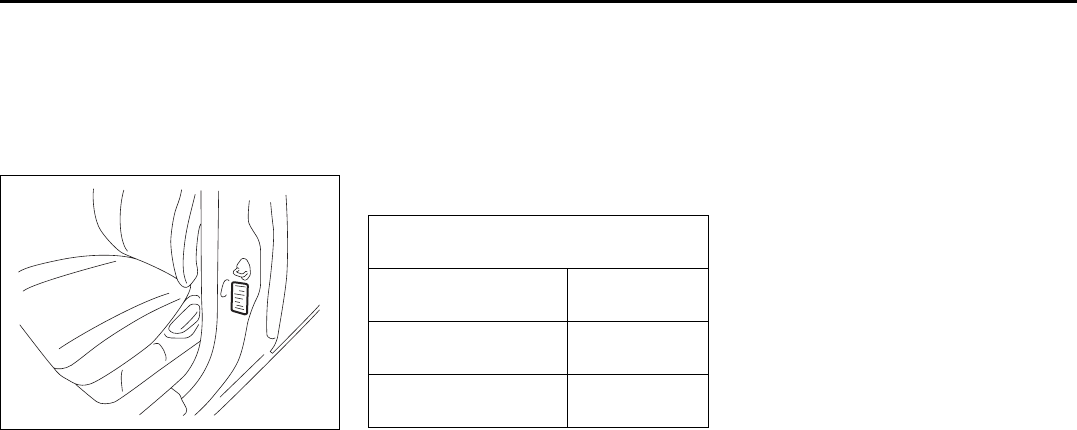
7-30
INSPECTION AND MAINTENANCE
57L20-03E
Tire Inflation Pressure
Tire inflation pressure should be
checked when the tire is cold. “Cold
tire inflation pressure” is the pressure
in a tire that has been driven less than
1 mile (1.6 km) or has been standing
for three hours or more.
80JS025
The front and rear tire pressure speci-
fications for your vehicle are shown
below and are listed on the Tire and
Loading Information Label, which is
located on the driver’s door lock pillar.
The Tire and Loading Information
Label contains the following informa-
tion:
• Seating Capacity
• Maximum Allowed Combined
Weight of Occupants and Cargo
• Original Tire Size
• Recommended Cold Tire Inflation
Pressure of Original Tires
• Size of Compact Spare Tire
• Recommended Cold Tire Inflation
Pressure of Compact Spare Tire
NOTE:
The tire inflation pressure will change
due to changes in atmospheric pres-
sure, temperature or tire temperature
when driving. To reduce the chance
that the low tire pressure warning light
will come on due to normal changes in
temperature and atmospheric pres-
sure, it is important to check and
adjust the tire pressures when the tires
are cold. Tires that appear to be at the
specified pressure when checked after
driving, when the tires are warm, could
have pressure below the specification
when the tires cool down. Also, tires
that are inflated to the specified pres-
sure in a warm garage may have pres-
sure below the specification when the
vehicle is driven outside in very cold
temperature. If you adjust the tire
pressure in a garage that is warmer
than the outside temperature, you
should add 1 psi to the recommended
cold tire inflation pressure for every
10°F difference between garage tem-
perature and outside temperature.
EXAMPLE
Recommended Cold Tire Inflation
Pressures
Front Tires
260 kPa
38 psi
Rear Tires
260 kPa
38 psi
Compact Spare Tire
420 kPa
60 psi


















